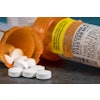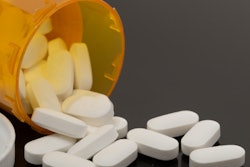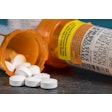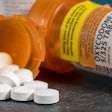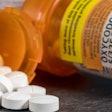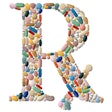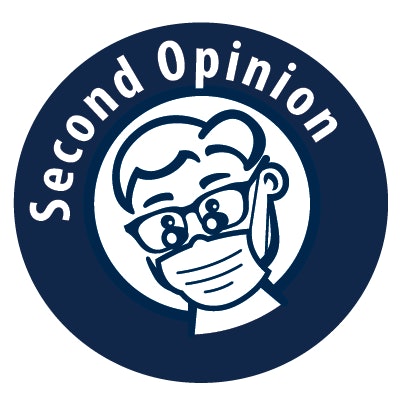
The ongoing opioid epidemic has responsible dental practitioners seeking effective means of pain relief for their patients.
Nonsteroidal anti-inflammatory drugs (NSAIDs) are an option many practitioners recommend to their patients. These drugs (such as ibuprofen, aspirin, naproxen, and ketorolac) can reduce pain and inflammation. They also have the advantage of being able to be taken before and after oral surgery.
In addition, NSAIDs can be combined with acetaminophen to have an even greater effect. The American Association of Oral and Maxillofacial Surgeons (AAOMS) published a white paper in 2017 indicating this combination rivals the effect of opioids. However, overdose is still a concern, so dosage levels and administration times must be carefully followed and documented.
Injections
 Colin Bell, DDS.
Colin Bell, DDS.Another consideration for pain management is the injection of a long-acting local anesthetic into the site of the oral pain before surgery. This can also delay the onset of postoperative pain and reduce its severity. One option is Marcaine (bupivacaine hydrochloride injection) (Pfizer), which has been approved by the U.S. Food and Drug Administration (FDA) and used for treating dental pain for decades. Generic forms also may be available.
Another option is Exparel (bupivacaine liposome) (Pacira Pharmaceuticals), which is from the same drug family as Marcaine and its generic forms. Exparel was approved by the FDA in October 2011, but it has intriguing possibilities that are worth examining.
Comparing the labels of the two pharmaceuticals, Exparel is "indicated for single-dose infiltration in adults to produce postsurgical local analgesia and as an interscalene brachial plexus nerve block to produce postsurgical regional analgesia," but safety and efficacy have not been established in other nerve blocks."
Marcaine is indicated for the "production of local or regional anesthesia or analgesia for surgery, dental and oral surgery procedures, diagnostic and therapeutic procedures, and for obstetrical procedures."
For most patients, Marcaine and its generic forms provide relief for seven hours or more if used in conjunction with epinephrine, according to the manufacturers. Exparel's longevity may vary, depending on the initial dosage amount and the patient's personal pharmacology, but it is recorded to peak around 24 hours and may last longer, according to Pacira. The manufacturer notes this is due to the drug's propriety delivery system, which is largely continuous long after the initial injection.
Considerations
Before prescribing a pain management option, oral surgeons need to consider the patient's age. For example, Marcaine has been approved for treating dental pain in patients as young as 12 years old, according to the FDA, but Exparel is not recommended for anyone younger than age 18.
Another consideration is cost. The price of Exparel is $175 for 10 mL and $325 for 20 mL, according to the Exparel website as of May 21. The price of generic bupivacaine is considerably less.
Marcaine is currently covered, at least in part, by most insurers and many other reimbursement programs. Exparel is covered by Aetna under certain circumstances, including third-molar extractions, as of November 2017. In addition, a separate D-code (D9613) was announced in January 2019, which according to Pacira's website, will allow for reimbursement of Exparel costs in oral surgery procedures.
Before prescribing any course of treatment, talk with your patient and their family about pain management alternatives, as well as the proper use, storage, and disposal of any medication you might prescribe. Also, provide tips for recognizing and addressing medication abuse, particularly if you prescribe an opioid. You can find opioid prescribing guidelines and descriptions of opioid alternatives specific to dental pain available for free on the AAOMS and ADA websites.
Regardless of the pain management plan you choose, make detailed notes in the patient's files to indicate which treatment plan was recommended, implemented, and why. If there isn't a compelling reason to document opioid treatment, don't prescribe it.
Colin Bell, DDS, is a practicing oral surgeon at Oral Surgery Associates of North Texas in Dallas and the chief clinical officer of U.S. Oral Surgery Management.
Disclaimer
Dr. Bell has no affiliation with the companies mentioned in this Second Opinion.
The comments and observations expressed herein do not necessarily reflect the opinions of DrBicuspid.com, nor should they be construed as an endorsement or admonishment of any particular idea, vendor, or organization.


